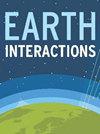Evaluating the Transformation of Urban River Water Quality from Receiving Urban Sewage to a Leisure Venue through an Economic Lens: A Case Study from Tokyo
IF 1.1
4区 地球科学
Q3 GEOSCIENCES, MULTIDISCIPLINARY
引用次数: 0
Abstract
Although environmental sustainability provides a foundation for maintaining economic and social sustainability, it is often neglected in favor of economic sustainability. Ameliorating water impairment is costly, and policymakers do not always prioritize this problem because its economic benefits are often intangible. This study explored the potential economic value for Tokyo’s regional economy of past improvements in the water quality of its rivers. Transitioning the rivers from their previous role as sewage drainage pipes to venues for spending leisure time created economic incentives in the local economy. An input-output analysis showed that in 1985, the inland navigation sector in the Sumida River generated 1.5 times the economic output by increasing demand. While this impact decreased to 1.3 times in 2005, the results clearly indicate that the regional economy can generate amenity values by improving the environmental quality. This study provides useful information to guide policymakers in allocating the budget for environmental management. In particular, it allows them to envision possible development plans to promote the livelihood of urban residents as well as understand the linkage between the environment and the economy.从经济角度评价城市河流水质从接收城市污水到休闲场所的转变:以东京为例
虽然环境的可持续性为维持经济和社会的可持续性提供了基础,但它往往被经济的可持续性所忽视。改善水的损害是昂贵的,决策者并不总是优先考虑这个问题,因为它的经济效益往往是无形的。本研究探讨了过去东京河流水质改善对东京区域经济的潜在经济价值。将河流从以前的排污管道转变为休闲场所,为当地经济创造了经济激励。一项投入产出分析表明,1985年,隅田河的内河航运部门通过增加需求产生了1.5倍的经济产出。虽然这一影响在2005年下降到1.3倍,但结果清楚地表明,区域经济可以通过改善环境质量来创造舒适价值。本研究为指导决策者分配环境管理预算提供了有用的信息。特别是,它使他们能够设想可能的发展计划,以促进城市居民的生计,并了解环境与经济之间的联系。
本文章由计算机程序翻译,如有差异,请以英文原文为准。
求助全文
约1分钟内获得全文
求助全文
来源期刊

Earth Interactions
地学-地球科学综合
CiteScore
2.70
自引率
5.00%
发文量
16
审稿时长
>12 weeks
期刊介绍:
Publishes research on the interactions among the atmosphere, hydrosphere, biosphere, cryosphere, and lithosphere, including, but not limited to, research on human impacts, such as land cover change, irrigation, dams/reservoirs, urbanization, pollution, and landslides. Earth Interactions is a joint publication of the American Meteorological Society, American Geophysical Union, and American Association of Geographers.
 求助内容:
求助内容: 应助结果提醒方式:
应助结果提醒方式:


